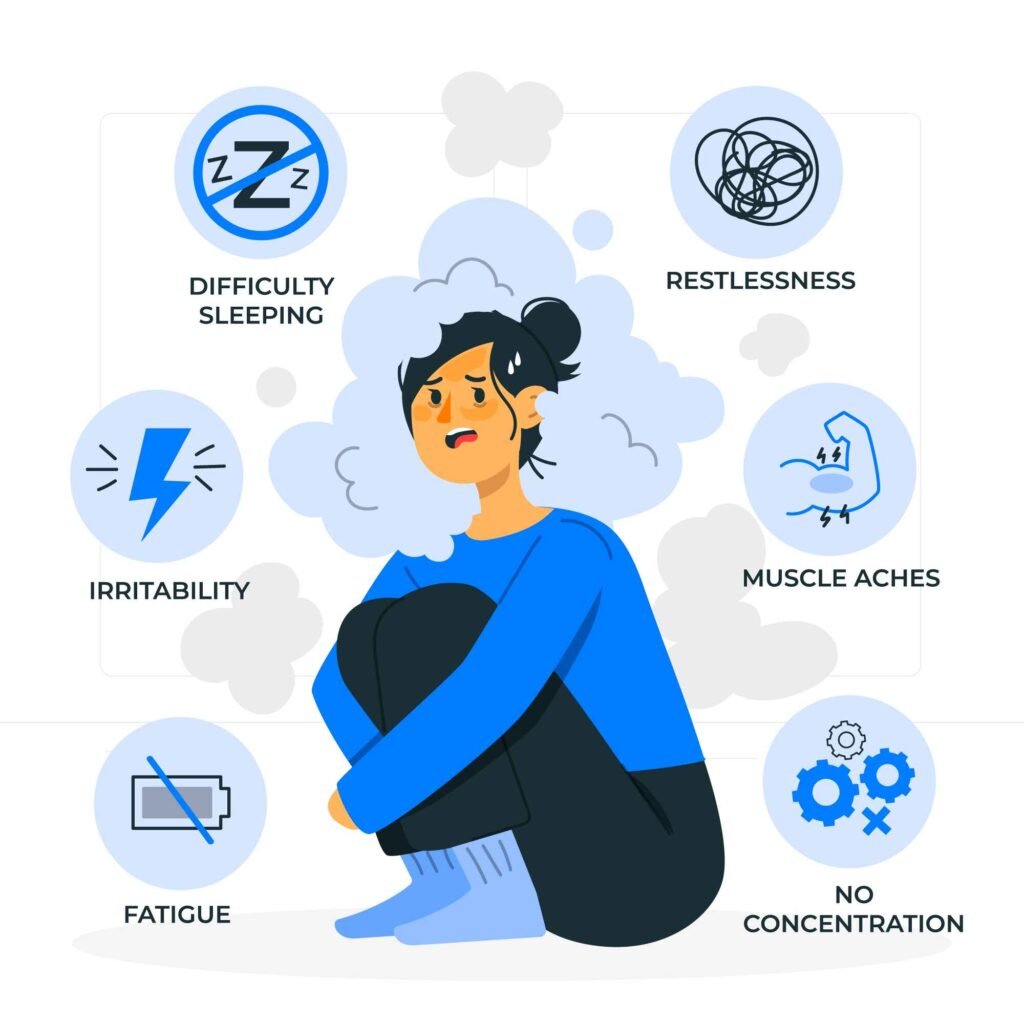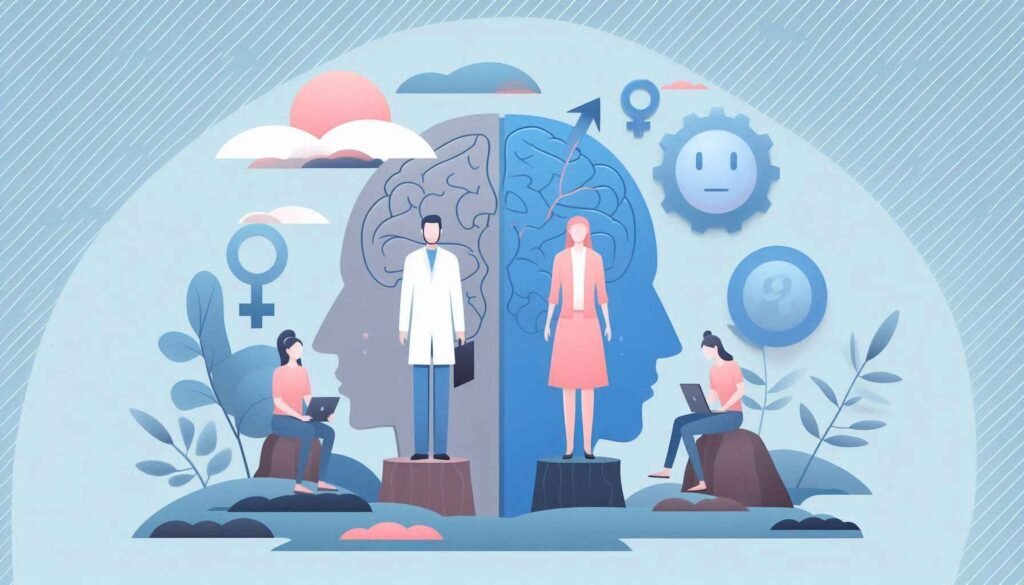
Navigating Postpartum Depression: Resources for New Moms
Bringing a new baby into the world is often described as one of the happiest moments in a woman’s life. But for many new moms, this joy can be accompanied by overwhelming feelings of sadness, anxiety, and exhaustion. If you’re experiencing this, know that you’re not alone. Postpartum depression (PPD) affects 1 in 7 women, and it’s not a sign of weakness or a reflection of how much you love your baby.
Understanding postpartum depression, recognizing the signs, and knowing where to find support can make a world of difference. This guide provides actionable insights and essential resources to help new moms navigate postpartum depression.
What is Postpartum Depression?
Postpartum depression is a mood disorder that can develop after childbirth. Unlike the “baby blues,” which typically last a week or two and involve mild mood swings, PPD is more intense and long-lasting. It can begin anytime during the first year after giving birth and can significantly affect a mother’s well-being.
Common Symptoms of Postpartum Depression
The signs of postpartum depression can vary widely. Here are some common symptoms to watch out for:
- Persistent Sadness: Feeling hopeless, tearful, or empty.
- Extreme Fatigue: Constant exhaustion even after resting.
- Irritability or Anger: Quick to anger or feeling easily overwhelmed.
- Anxiety and Panic Attacks: Feeling a sense of dread or experiencing panic.
- Changes in Appetite: Eating much more or less than usual.
- Sleep Disturbances: Insomnia or sleeping excessively.
- Difficulty Bonding with the Baby: Feeling detached or uninterested.
- Thoughts of Self-Harm: Thinking about harming yourself or your baby.
Recognizing these signs early can help you seek the right support sooner.
Understanding the Causes of Postpartum Depression
Postpartum depression is not caused by a single factor. It often results from a combination of physical, emotional, and environmental factors.
Hormonal Changes
After childbirth, a dramatic drop in hormones like estrogen and progesterone can affect your mood. These hormonal shifts can contribute to feelings of depression and fatigue.
Sleep Deprivation
New moms often experience fragmented sleep, making it difficult for the body and mind to recover. Lack of quality sleep can exacerbate feelings of depression and anxiety.
Emotional Challenges
Caring for a newborn can be emotionally draining. The pressure to be the “perfect mom” and the fear of making mistakes can weigh heavily on your mental health.
History of Mental Health Issues
If you have a history of depression or anxiety, you may be at higher risk for postpartum depression. It’s important to be aware of this risk and have a support system in place.
Why It’s Important to Seek Help
Postpartum depression is treatable. Ignoring it can lead to worsening symptoms and affect both you and your baby. Seeking help not only improves your mental health but also supports your ability to care for your child.
Benefits of Early Intervention
- Faster Recovery: The sooner you get help, the quicker you can begin to feel better.
- Better Bonding with Your Baby: Treatment can help you develop a stronger emotional connection with your baby.
- Improved Family Dynamics: A healthy mom supports a healthier family environment.
- Preventing Long-Term Effects: Addressing PPD early reduces the risk of chronic depression or anxiety.
Self-Care Strategies for Managing Postpartum Depression
In addition to professional help, self-care is essential in managing postpartum depression. Here are some actionable strategies that can help:
1. Prioritize Rest
While it may seem impossible with a newborn, try to sleep whenever you can. Nap when the baby naps, and ask for help so you can get a full night’s rest whenever possible.
2. Maintain a Balanced Diet
Eating nutritious meals can positively impact your mental health. Aim for foods rich in omega-3 fatty acids, such as salmon and walnuts, and include plenty of fruits and vegetables.
3. Stay Physically Active
Exercise has been shown to reduce symptoms of depression. Start with gentle activities like walking, yoga, or stretching. Even 10-15 minutes of movement can make a difference.
4. Connect with Other Moms
Isolation can make postpartum depression worse. Consider joining a support group for new mothers, either in person or online. Talking to others who understand your experience can be comforting.
5. Be Kind to Yourself
Release any unrealistic expectations of motherhood. You don’t have to do everything perfectly. Celebrate small victories and give yourself permission to rest and recover.
6. Practice Mindfulness and Meditation
Mindfulness practices like deep breathing, meditation, or progressive muscle relaxation can help you manage anxiety and stay grounded during stressful moments.
Professional Resources for Postpartum Depression
Seeking professional help is one of the most effective ways to navigate postpartum depression. Here are some resources and options for treatment:
1. Therapy and Counseling
- Cognitive Behavioral Therapy (CBT): CBT helps you recognize and change negative thought patterns.
- Talk Therapy: Speaking with a mental health professional can provide relief and strategies to cope.
- Support Groups: Group therapy with other moms facing similar challenges can offer emotional support.
2. Medical Treatment
In some cases, medication may be recommended. Antidepressants can help balance your brain chemistry, but always consult your healthcare provider to determine the best option for you.
3. Postpartum Support International (PSI)
Postpartum Support International offers a variety of resources for moms experiencing PPD. They have a helpline, online support groups, and educational materials to help you understand and manage postpartum depression.
4. Helplines and Hotlines
- National Suicide Prevention Lifeline: 1-800-273-TALK (8255) – Available 24/7.
- Crisis Text Line: Text “HELLO” to 741741 for free support via text.
- Local Hotlines: Many communities have local mental health helplines specifically for postpartum support.
5. Maternal Mental Health Specialists
Some therapists specialize in maternal mental health and are trained to understand the specific challenges new moms face. Consider seeking one out if you feel your needs require specialized care.Partner and Family Support: How Loved Ones Can Help
Support from your partner, family, and friends is invaluable during this time. Here are some ways your loved ones can assist you:
Watch for Warning Signs: Partners and family members can help monitor for signs of worsening depression.
Offer Practical Help: Help with household chores, meal preparation, or baby care.
Listen Without Judgment: Sometimes, simply being there to listen can make a big difference.
Encourage Professional Support: Gently suggest seeking help if symptoms persist. Practical Coping Strategies for Postpartum Depression
Managing postpartum depression can feel overwhelming, but there are practical steps you can take each day to help you cope. By implementing these strategies, you can gradually improve your mental health and create a healthier environment for you and your baby.
1. Create a Daily Routine
Having a consistent routine can provide structure and reduce anxiety. Start with small, manageable tasks such as:
- Morning Check-In: Begin each day with a moment of mindfulness or gratitude.
- Meal Times: Schedule regular meal breaks to ensure you’re nourishing your body.
- Daily Walk: A brief walk outside can help clear your mind and boost your mood.
- Bedtime Ritual: Establish a relaxing bedtime routine to help you wind down.
Routines don’t have to be rigid. Focus on consistency, not perfection.
2. Set Realistic Expectations
Motherhood can feel demanding, and it’s easy to feel like you’re not doing enough. Set realistic goals and recognize that it’s okay to have limitations. Break tasks into smaller steps and celebrate your accomplishments, no matter how small.
For example:
- Instead of: “I’ll clean the entire house today.”
- Try: “I’ll tidy one room today.”
Setting achievable goals can prevent feelings of failure and reduce stress.
3. Practice Self-Compassion
New moms often hold themselves to impossible standards. Self-compassion means treating yourself with the same kindness and understanding that you’d offer a close friend.
Ways to Practice Self-Compassion:
- Affirmations: Repeat positive statements like, “I am doing my best,” or “It’s okay to ask for help.”
- Journaling: Write down your thoughts and feelings to process them.
- Forgive Yourself: If you make a mistake, remind yourself that no one is perfect.
Self-compassion is not about ignoring challenges; it’s about recognizing your humanity.
4. Engage in Gentle Exercise
Physical activity is a powerful tool for improving mood and reducing symptoms of depression. You don’t need to hit the gym—gentle activities can be just as effective.
Exercises to Try:
- Postnatal Yoga: Helps stretch your body, calm your mind, and promote healing.
- Walking: A 15-20 minute walk outdoors can lift your spirits.
- Pelvic Floor Exercises: Strengthen your core and improve postnatal recovery.
Listen to your body, and don’t push yourself too hard. Even small movements count.
How Partners and Family Can Support New Moms
Support from loved ones plays a crucial role in a mom’s recovery from postpartum depression. Partners, family, and friends can make a significant difference by offering understanding, patience, and practical assistance.
1. Educate Yourself About Postpartum Depression
Understanding what postpartum depression is and how it manifests can help you provide better support. Learn about:
- Symptoms: Be aware of the signs and how they differ from typical new-mom exhaustion.
- Triggers: Recognize potential stressors, such as lack of sleep or isolation.
- Treatment Options: Familiarize yourself with therapy, medication, and self-care strategies.
Knowledge fosters empathy and reduces misunderstandings.
2. Offer Practical Help
New moms often need assistance with everyday tasks. Offering practical help can relieve their stress and give them time to focus on recovery.
Ways to Help:
- Household Chores: Clean the kitchen, do laundry, or run errands.
- Baby Care: Take over feeding, changing, or soothing the baby so the mom can rest.
- Meal Preparation: Cook nutritious meals or set up a meal delivery plan.
Even small acts of service can have a big impact.
3. Be an Active Listener
Sometimes, new moms just need someone to talk to. Be a patient, non-judgmental listener, and offer support without trying to “fix” everything.
Listening Tips:
- Validate Feelings: Say things like, “It’s okay to feel this way,” or “I’m here for you.”
- Avoid Judgments: Don’t criticize or offer unsolicited advice.
- Ask Open-Ended Questions: Encourage her to share more by asking, “How are you feeling today?”
Being heard and understood can be deeply healing.
4. Encourage Professional Help
If symptoms persist or worsen, encourage seeking professional help. Offer to:
- Research Therapists: Find local mental health professionals who specialize in postpartum depression.
- Attend Appointments: Accompany her to therapy sessions for moral support.
- Normalize Seeking Help: Remind her that therapy and treatment are common and effective.
Your support can make the decision to seek help less daunting.
Overcoming Stigma Around Postpartum Depression
Many moms hesitate to talk about postpartum depression due to fear of judgment or stigma. Society often expects mothers to be joyful and selfless, which can make it hard to admit to struggling.
Breaking the Silence
Talking openly about your experiences helps dismantle the stigma. Share your journey with trusted friends, support groups, or online communities. By speaking out, you may inspire others to seek help and know they are not alone.
Know It’s Not Your Fault
Postpartum depression is a medical condition, not a personal failure. Just as you would seek treatment for a physical illness, it’s important to seek help for mental health challenges.
Inspiring Stories of Recovery
Many women who have experienced postpartum depression go on to live fulfilling, joyful lives. Hearing stories of recovery can provide hope and encouragement.
Key Takeaway:
You are not alone, and recovery is possible. With the right support, you can emerge stronger and more resilient.
Building a Support Network
A strong support network is essential for navigating postpartum depression. Surround yourself with people who understand, encourage, and uplift you.
1. Join Local Support Groups
Many communities offer support groups for new moms. These groups provide a safe space to share experiences, ask questions, and connect with others who understand.
2. Online Communities
If in-person support isn’t available, online communities can be a valuable resource. Platforms like Facebook, Reddit, and dedicated mental health websites offer groups where you can share anonymously.
3. Lean on Friends and Family
Don’t hesitate to reach out to friends or family members who can offer emotional or practical support. Let them know what you need, whether it’s someone to talk to or help with errands.
4. Reach Out to Healthcare Providers
Your healthcare provider can connect you to resources like therapists, lactation consultants, and support services. They can also monitor your progress and recommend additional treatments if needed. Building Resilience Through Lifestyle Changes
Recovering from postpartum depression often involves lifestyle adjustments that promote mental and emotional well-being. These changes may seem small, but they can have a profound impact on your overall health.
1. Establish Healthy Sleep Habits
Lack of sleep is a significant contributor to postpartum depression. While getting a full eight hours might not be realistic with a newborn, improving sleep quality can help.
Tips for Better Sleep:
- Share Nighttime Duties: If possible, alternate nighttime feedings with your partner or a family member.
- Create a Relaxing Environment: Dim lights, reduce noise, and keep your room cool and comfortable.
- Nap Strategically: Take short naps when your baby sleeps to recharge without feeling groggy.
- Avoid Stimulants Before Bed: Limit caffeine and screen time in the evening.
Even small improvements in sleep can have a big impact on your mental health.
2. Focus on Nutrition
Your body needs proper fuel to recover and function optimally. Eating a balanced diet can support your physical and emotional well-being.
Postpartum Nutrition Essentials:
- Omega-3 Fatty Acids: Found in fish, flaxseeds, and walnuts, omega-3s can help improve mood.
- Lean Proteins: Chicken, beans, and eggs provide the energy you need to get through the day.
- Whole Grains: Brown rice, quinoa, and oats can help stabilize your blood sugar levels.
- Stay Hydrated: Drink plenty of water to stay energized and prevent dehydration.
Aim for regular, balanced meals, and avoid skipping meals, even when you’re busy.
3. Incorporate Gentle Movement Daily
Exercise doesn’t have to be intense to be effective. Gentle physical activities can improve your mood and energy levels.
Easy Activities to Try:
- Stroller Walks: Take your baby for a walk in the fresh air.
- Postnatal Yoga: Stretch and relax while bonding with your baby.
- Pelvic Floor Exercises: These strengthen your core and promote post-birth recovery.
Movement helps release endorphins, which naturally boost your mood.
Creating a Supportive Environment at Home
Your home environment plays a crucial role in your recovery. Creating a supportive, calming space can help reduce stress and promote healing.
1. Declutter and Organize
Clutter can contribute to feelings of overwhelm. Start small by decluttering one area at a time.
Quick Decluttering Tips:
- Focus on Essentials: Keep only what you need within easy reach.
- Create Baby Zones: Organize baby supplies in designated areas.
- Ask for Help: If you’re feeling overwhelmed, ask a loved one to help you tidy up.
A cleaner space can provide a sense of calm and control.
2. Establish Boundaries with Visitors
While friends and family may want to visit, it’s important to protect your energy and well-being.
How to Set Healthy Boundaries:
- Limit Visits: Schedule visits during times when you feel most rested.
- Say No: Don’t feel obligated to entertain guests if you’re not up for it.
- Communicate Your Needs: Let others know when you need space or help.
Prioritize your recovery and don’t hesitate to put your needs first.
3. Create a Relaxation Corner
Dedicate a small area of your home to relaxation. This can be your go-to spot when you need a moment to breathe and recharge.
What to Include:
- Comfortable Chair or Cushion: For reading or resting.
- Soft Lighting: A lamp or fairy lights can create a calming ambiance.
- Calming Tools: Books, journals, or meditation apps.
Having a dedicated space for relaxation can make it easier to practice self-care.
The Role of Healthcare Providers in Recovery
Healthcare providers are your allies in navigating postpartum depression. They can offer guidance, treatment options, and reassurance.
1. Regular Check-Ins with Your Doctor
Schedule regular check-ups with your healthcare provider to monitor your mental health. Don’t hesitate to discuss any symptoms you’re experiencing, no matter how small they may seem.
Topics to Discuss:
- Mood Changes: Share any feelings of sadness, anxiety, or irritability.
- Sleep Patterns: Talk about any sleep disturbances.
- Physical Health: Discuss how your body is recovering post-birth.
Your doctor can help you create a personalized plan for recovery.
2. Therapy and Counseling Options
Therapy is a powerful tool for managing postpartum depression. There are several types of therapy to consider:
Types of Therapy:
- Cognitive Behavioral Therapy (CBT): Helps identify and change negative thought patterns.
- Interpersonal Therapy (IPT): Focuses on improving relationships and communication.
- Group Therapy: Provides a supportive environment to share experiences with other moms.
A mental health professional can help you decide which type of therapy is best for you.
3. Medication When Needed
In some cases, medication may be necessary to manage postpartum depression. Antidepressants can help balance brain chemistry and improve mood.
Things to Know About Medication:
- Consult Your Doctor: Always discuss potential benefits and side effects.
- Breastfeeding Considerations: Many medications are safe for breastfeeding moms.
- Stay Patient: It may take a few weeks to feel the full effects.
Medication can be an important part of your recovery journey.
Stories of Hope and Recovery
Hearing from other moms who have overcome postpartum depression can provide comfort and inspiration. Their stories remind us that recovery is possible and that no one has to face this journey alone.
1. Real-Life Stories of Healing
- Mia’s Journey: After months of feeling isolated, Mia joined a local support group. Connecting with other moms helped her regain confidence and joy in motherhood.
- Rachel’s Breakthrough: Rachel struggled with severe anxiety until she sought therapy. With the help of CBT, she learned coping strategies that transformed her daily life.
- Ana’s Support Network: Ana relied on her family and friends to help with baby care while she focused on her mental health. Their support made her recovery possible.
These stories illustrate that seeking help and building a support system can lead to healing and resilience.



